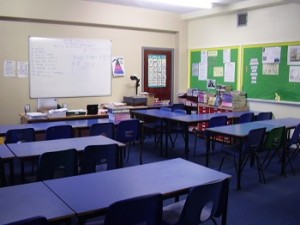The announcement of the purchase of the Israeli company has now been officially made.
Check Point Software Technologies has now officially announced the acquisition of the Israel based Lacoon Mobile Security business, following a slew of reports that had appeared throughout March.
Last month’s reports had suggested that the companies had been in talks for an $80 million purchase.
As of the writing of this article, the actual price of the sale of the mobile security company had not been released. That said, the deal has now officially closed and has been announced by the companies. This purchase of Lacoon will hand Check Point an important piece in the smartphone and tablet based security puzzle. This will allow it to step its offerings up from the standard mobile device management that is the foundation of many of its rivals. This, according to the vice president of business development at Check Point, Alon Kantor.
Adding mobile security to device management can provide an entirely new level to remote services.
 Typically speaking, mobile device management has to do with providing IT with control over a smartphone or tablet in a remote way, so that actions can be taken such as removing corporate data from a personal device if an employee should leave the business, or even completely wiping a stolen phone.
Typically speaking, mobile device management has to do with providing IT with control over a smartphone or tablet in a remote way, so that actions can be taken such as removing corporate data from a personal device if an employee should leave the business, or even completely wiping a stolen phone.
What makes Lacoon unique is the way in which it looks at mobile device security. Kantor described it by saying that “MDM manages the devices and the applications while the Lacoon solution is about securing these devices and blocking advanced mobile threats such as malware, [advanced persistent threats] or targeted network attacks.”
This functions with both Android and iOS based devices. It collects data with regards to threats and then complements any other existing security infrastructure that a company has put into place. This could provide Check Point with a very powerful mobile security tool, according to Constellation Research principal, R. Ray Wang. He explained that instead of having to depend on the reaction of MDM to a threat to security, once it has already happened, Lacoon protects proactively to protect against the attacks in the first place.
Educators in that region are supporting the use of these devices to help to enhance their instructions.
Teachers in the Asia-Pacific region are welcoming the use of mobile technology to an increasing degree in order to provide students in their classrooms with an enhanced learning experience and to improve the way that they receive their instructions.
The results of a recent study have shown that this trend in the use of mobile devices is a growing one.
The research was conducted by Adobe, for a study that they entitled “Transforming Education with Mobile and Digital Technology.” It involved the participation of over 1,000 educators throughout 13 different Asia-Pacific countries. Among them, 77 percent said that they had noticed a positive impact, overall, when it came to the strategic integration of mobile technology into their teaching process.
There were certain countries in which mobile technology was used to a greater degree than others.
 For example, in Southeast Asia, 85 percent of teachers said that mobile devices played a positive role in their classrooms. Equally, 85 percent of South Korean educators also said that these gadgets enhanced the learning experience. Slightly fewer educators in China – 80 percent – felt the same way about mobile tech devices in the classroom, but clearly that figure represents the vast majority of teachers.
For example, in Southeast Asia, 85 percent of teachers said that mobile devices played a positive role in their classrooms. Equally, 85 percent of South Korean educators also said that these gadgets enhanced the learning experience. Slightly fewer educators in China – 80 percent – felt the same way about mobile tech devices in the classroom, but clearly that figure represents the vast majority of teachers.
Among the respondents, 83 percent said that students were better able to understand concepts and could improve upon them by way of the access that they had to digital tools and apps over smartphones and tablets. Teachers also stated that they would use these devices in order to help them build their lesson plans. That was true among 98 percent of educators in Southeast Asia and 90 percent of teachers in Greater China.
Furthermore, among the teachers in Southeast Asia, 100 percent said that there was a strong need for schools to make sure that students were provided with the mobile technology facilities that they needed to learn, whereas 90 percent felt this way in Greater China, and in South Korea, 89 percent shared that belief. According to Adobe Asia-Pacific business manager for education, Wayne Weisse, “The ability to visualize or integrate interactive learning experiences in the classroom via a mobile device can make a huge difference in learning outcomes when engaging with today’s millennial generation.”
 Typically speaking, mobile device management has to do with providing IT with control over a smartphone or tablet in a remote way, so that actions can be taken such as removing corporate data from a personal device if an employee should leave the business, or even completely wiping a stolen phone.
Typically speaking, mobile device management has to do with providing IT with control over a smartphone or tablet in a remote way, so that actions can be taken such as removing corporate data from a personal device if an employee should leave the business, or even completely wiping a stolen phone.
 For example, in Southeast Asia, 85 percent of teachers said that
For example, in Southeast Asia, 85 percent of teachers said that 